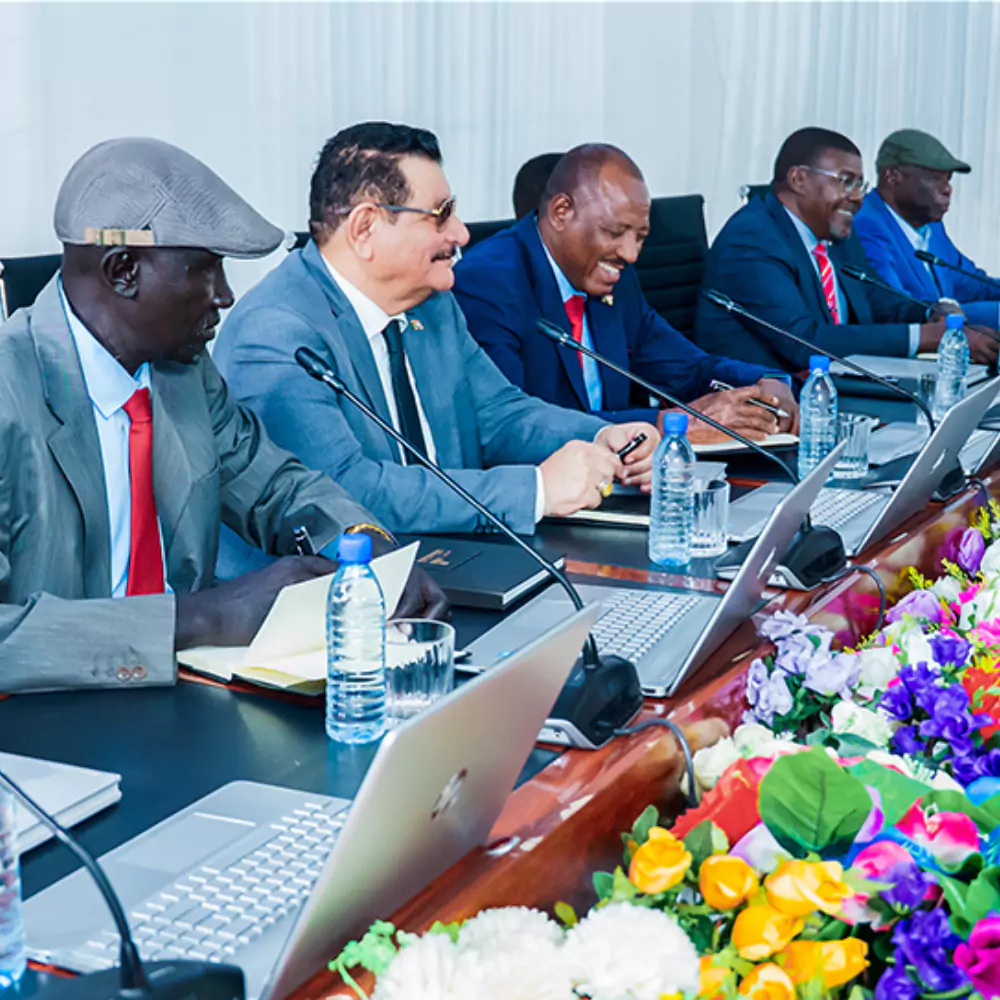About the Government of the Republic of Sudan
The Government of the Republic of Sudan is the nation’s transitional authority, established to guide Sudan out of conflict and toward a democratic future.
We are committed to building a new, inclusive Sudan: a secular, democratic, and decentralized state where every citizen enjoys freedom, equality, dignity, security, and stability. This government administers territories under its control and serves as the foundation for a nation that values all its people, regardless of cultural, ethnic, religious, or regional identity.
As representatives of Sudan’s diverse heritage and shared values, we are dedicated to fostering national unity and cultural preservation. Our government aims to forge deeper relationships with international partners and neighboring communities to help advance peace and prosperity across the region.

Vision
To establish a democratic, inclusive, and civilian-led government that ensures stability, justice, and prosperity for all Sudanese people.
Mission
To establish a new Sudan rooted in justice, equal citizenship, the rule of law, peace, and voluntary unity, fostering inclusive governance, protecting human dignity, and advancing sustainable economic and social development for all.
Core Values
Peace, Justice, Federalism, Democracy, Transparency
A Brief History
The formation of the transitional government marks a pivotal moment in Sudan’s history, moving away from decades of centralization toward a more inclusive and representative system of governance. This new structure is founded on the principle that the diverse regions of Sudan are the nation’s greatest strength.
The government’s authority extends across eight key regions, each with its own unique identity and heritage: Khartoum, Darfur, Kordofan, Eastern Sudan, Northern Sudan, Central Sudan, Blue Nile, and Red Sea. This decentralized approach is a direct response to historical grievances and a commitment to ensuring that governance is rooted in local communities.
The roadmap for this new governance was laid out in a series of key events.
In February 2025, the Transitional Constitutional Charter was signed in Nairobi, establishing the legal framework for the new government. This was followed by the formal inauguration of the Presidential Council in July 2025. By August 2025, the ministries and regional governors were officially announced, completing the formation of the transitional administration.
This new chapter in Sudan’s history is not about erasing the past, but about learning from it. The government was formed in the wake of a popular revolution that sought to dismantle the root causes of marginalization and conflict. By empowering these regions, the government is working to build a prosperous and unified nation where every citizen’s voice is heard and every community can thrive. This is a promise to build a future where the wealth and resources of Sudan are shared equitably among all its people, fostering genuine peace and stability for generations to come.


